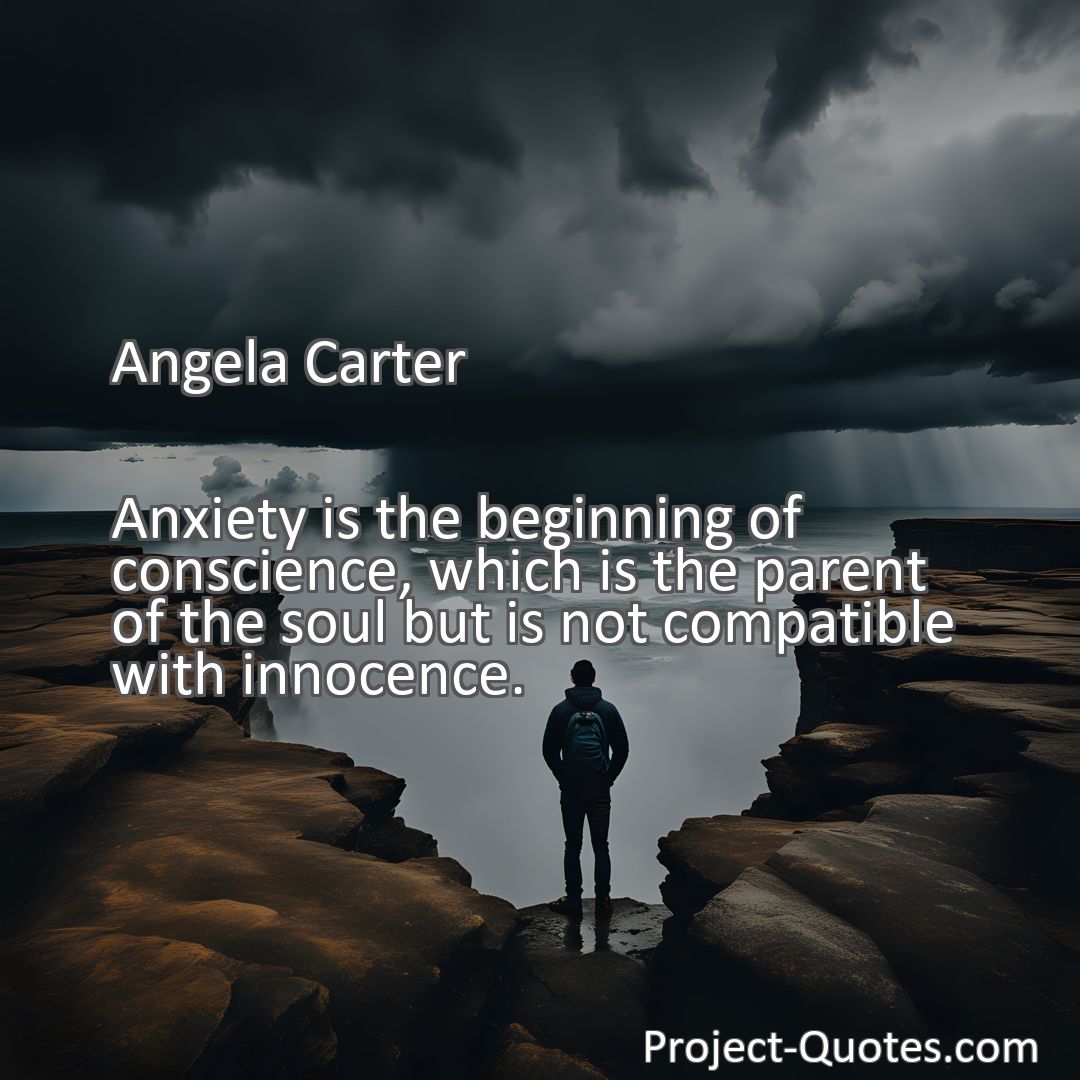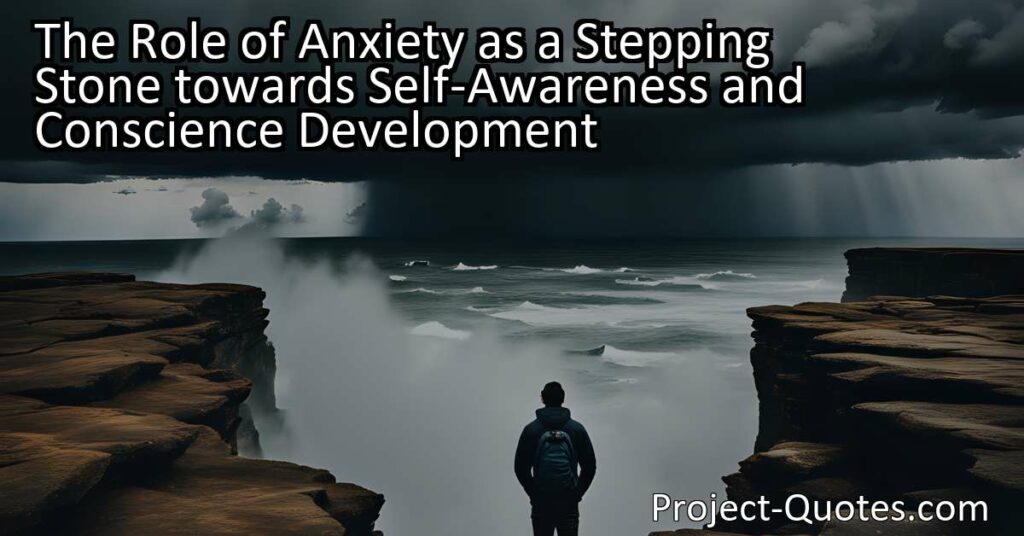Anxiety is the beginning of conscience, which is the parent of the soul but is not compatible with innocence.
Angela Carter
The Role of Anxiety as a Stepping Stone towards Self-Awareness and Conscience Development Anxiety, though uncomfortable, serves as a vital tool for personal growth and moral development. It acts as a catalyst for self-awareness and forces us to question our choices and their consequences. While anxiety may erode innocence, it paves the way for the development of a strong conscience and ultimately nurtures the soul.
Table of Contents
Meaning of Quote – Anxiety is the beginning of conscience, which is the parent of the soul but is not compatible with innocence.
Anxiety is a common emotion that many of us experience at various points in our lives. It manifests as a feeling of unease, worry, or fear, often stemming from uncertainty or anticipated future events. While anxiety can be overwhelming at times, it serves a purpose in our lives. Angela Carter, a renowned author, once said, “Anxiety is the beginning of conscience, which is the parent of the soul but is not compatible with innocence.” In this quote, Carter suggests that anxiety is not only a catalyst for self-awareness and moral judgment but also a concept that clashes with innocence.
When we delve into the idea that anxiety is the beginning of conscience, we can understand how this emotion can be instrumental in guiding our moral compass. Conscience refers to an inner sense of right and wrong, which drives our ethical decision-making. Without anxiety, we may never question the consequences of our actions or introspectively examine our intentions. Anxiety acts as a reminder that our choices have repercussions, and it prompts us to consider the impact they may have on ourselves and others. It serves as an impetus for self-reflection, leading us down a path of self-discovery and personal growth.
But why does Carter claim that anxiety is incompatible with innocence? To comprehend this statement, we must explore the nature of innocence itself. Innocence, in its purest form, signifies the absence of guilt, sin, or corruption. It is often associated with childlike naiveté, trust, and a lack of worldly experience. Anxiety, on the other hand, arises from an awareness of potential dangers or negative outcomes. It suggests a loss of innocence, as the individual is now exposed to the complexities and uncertainties of life.
Innocence is characterized by an absence of worry or apprehension. Children, for instance, often possess a carefree attitude, unburdened by the worries that plague adults. Their minds are unencumbered by the responsibilities and expectations of the world. However, as we grow older and face the challenges and disappointments of life, innocence gradually fades away. We become more cognizant of the potential dangers, uncertainties, and disappointments that accompany our choices and actions. Anxiety replaces innocence as our constant companion, reminding us of the need for caution and vigilance.
Anxiety can also be seen as incompatible with innocence because it disrupts our sense of peace and tranquility. Innocence brings about a state of contentment and bliss, untouched by the anxieties that often plague adulthood. In this sense, anxiety is disruptive and dissonant in the realm of innocence. It introduces worry, doubt, and fear into our lives, shaking the very foundation of our naiveté. We can no longer view the world through rose-colored glasses, as anxiety forces us to confront the harsh realities of life.
However, it is essential to understand that the absence of innocence does not necessarily imply moral corruption or a lack of goodness. Anxiety may erode innocence, but it also lays the groundwork for the development of conscience and ultimately the soul. As we navigate the complexities of life, anxiety serves as a catalyst for introspection, moral judgment, and personal growth. It propels us towards self-awareness and encourages us to question our actions, motivations, and the consequences of our choices.
Through anxiety, we become more in tune with our values and beliefs. We learn to distinguish right from wrong and actively seek to align our actions with our conscience. Anxiety’s disruptive nature can be seen as a necessary disruption, pushing us out of our comfort zones and forcing us to confront the ethical dilemmas we may encounter along our journey.
In conclusion, Angela Carter’s quote invites us to reflect on the intricate relationship between anxiety, innocence, conscience, and the soul. While anxiety may be incompatible with the simplicity and carefree nature of innocence, it serves as a stepping stone towards self-awareness, moral growth, and conscience development. Anxiety reminds us that our actions have consequences and compels us to question our choices. It is through this discomforting emotion that we evolve, becoming more attuned to our values and the impact our decisions may have on ourselves and others. So, embrace anxiety as the catalyst for self-discovery and personal growth, for it is the beginning of building a strong conscience and nurturing the soul.
I hope this quote inspired image brings you hope and peace. Share it with someone who needs it today!


